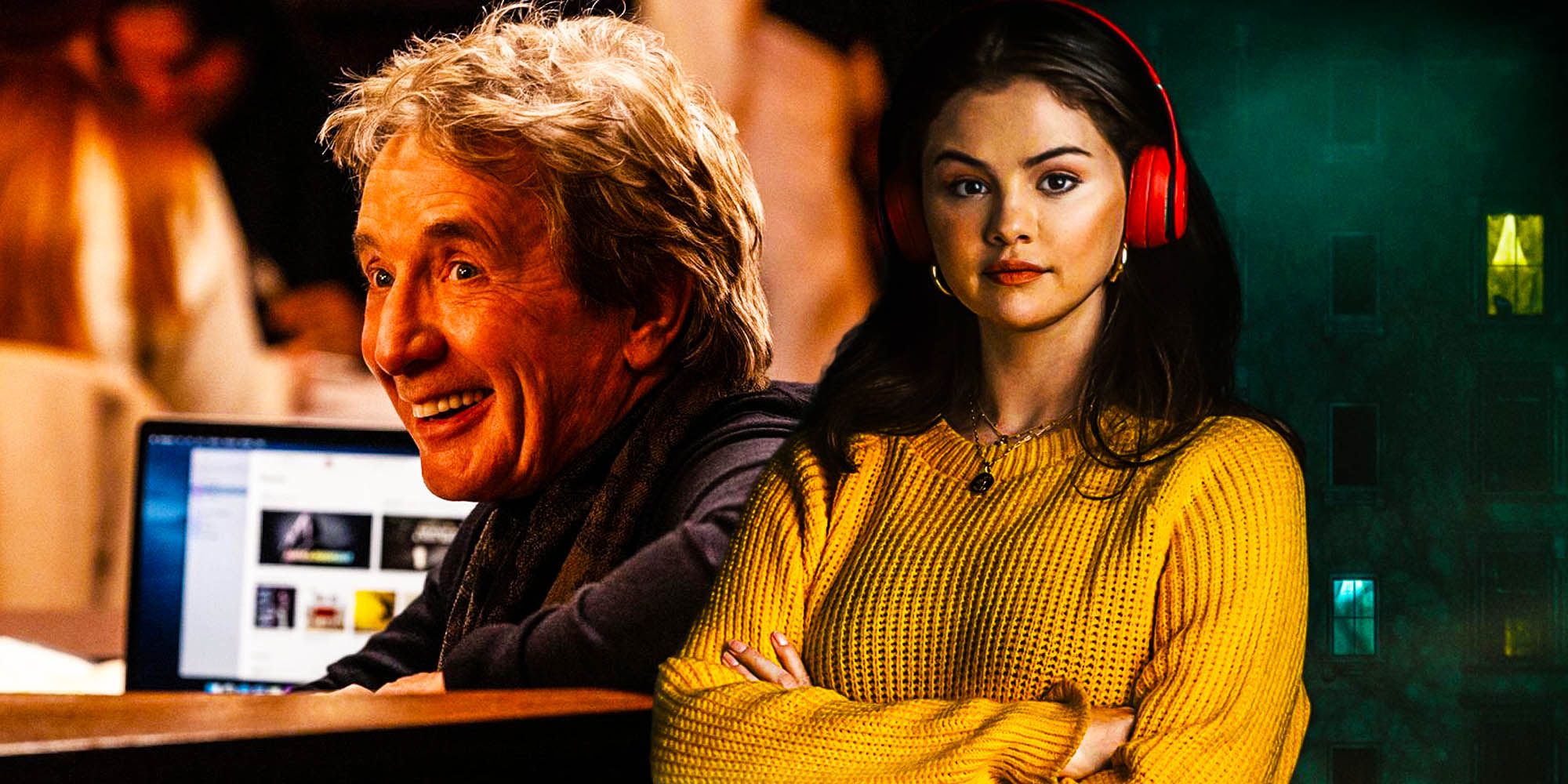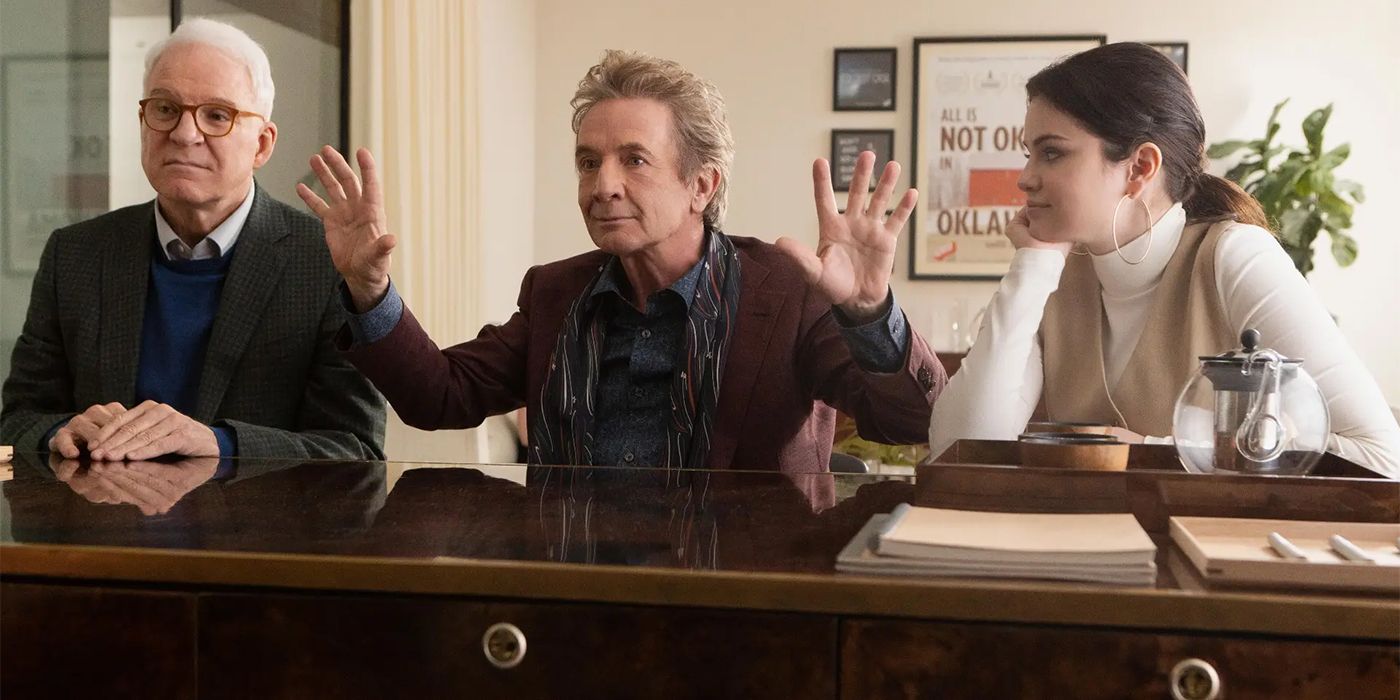Warning: Contains spoilers for Only Murders In The Building episode 6.
Only Murders In The Building episode 6, “To Protect and Serve,” carefully addressed some of the issues surrounding the characters making a true-crime podcast. Shows that follow real-life law enforcement as they work have been around for a long time. However, it was the relatively recent success of Serial in 2014 that launched the true-crime podcast genre into the mainstream and encouraged listeners to try and solve the crimes explored in them.
When resident Tim Kono of the Arconia, a New York City apartment building, is murdered, the police quickly discount the murder as a suicide. Fellow residents Oliver Putnam (Martin Short), Charles-Haden Savage (Steve Martin), and Mabel Mora (Selena Gomez) think there is something more going on and begin to investigate. As they were all fans of a true-crime podcast hosted by Cinda Canning (Tina Fey), Oliver persuades the group to start their own podcast with the possibility of reclaiming Oliver and Charles’ past fame as well as potentially solving Oliver’s money problems. Mabel’s motive is more personal, however, as she is hiding the fact that she knew Tim Kono since childhood.
In Only Murders In The Building episode 6, Oliver and Charles learn of Mabel’s personal connection to Tim and her mother highlights how much his death has affected Mabel’s life. While the characters have made the premise endearing for fans watching the show, this highlights one of the big criticisms that is regularly lobbied against true crime podcasts: the people they discuss are real people and those making the show are profiteering on those people’s pain. It would have been very easy for Only Murders In The Building to brush past this aspect, either by simply assuming that viewers would be 100% on board with the complex concept of true crime podcasts, or working to justify the genre with some of the common rebuttals to concerns (e.g., greater knowledge of true crime situations can help prevent people from becoming victims of future crimes).
By presenting Mabel as someone who is both a part of the podcast and also has a connection to the crime, the positively-reviewed Only Murders In The Building is able to humanize the issue of the real people being affected by these crimes and properly address it. It is important that Charles stands his ground and is ready to turn down $50,000 to avoid continuing the podcast once he has been able to put a face to the pain that the crime has caused. At the same time, the show is able to present Oliver as the character-driven by crass monetary interests in the matter to present multiple perspectives on the issue.
Only Murders In The Building also used episode 6 to quietly address another criticism of true crime podcasts: that some, like My Favorite Murder, can be quick to glorify the police. By focusing a part of Only Murders In The Building on cast members like Detective Williams (Da’Vine Joy Randolph), the show highlights how issues with police procedure and pressure can easily lead to mistakes and officers not properly exploring the victims as real people. While this kooky show could have just easily focused on their murder mystery, taking the time to acknowledge the potential cultural problems with the true crime genre and policing is an important move.


